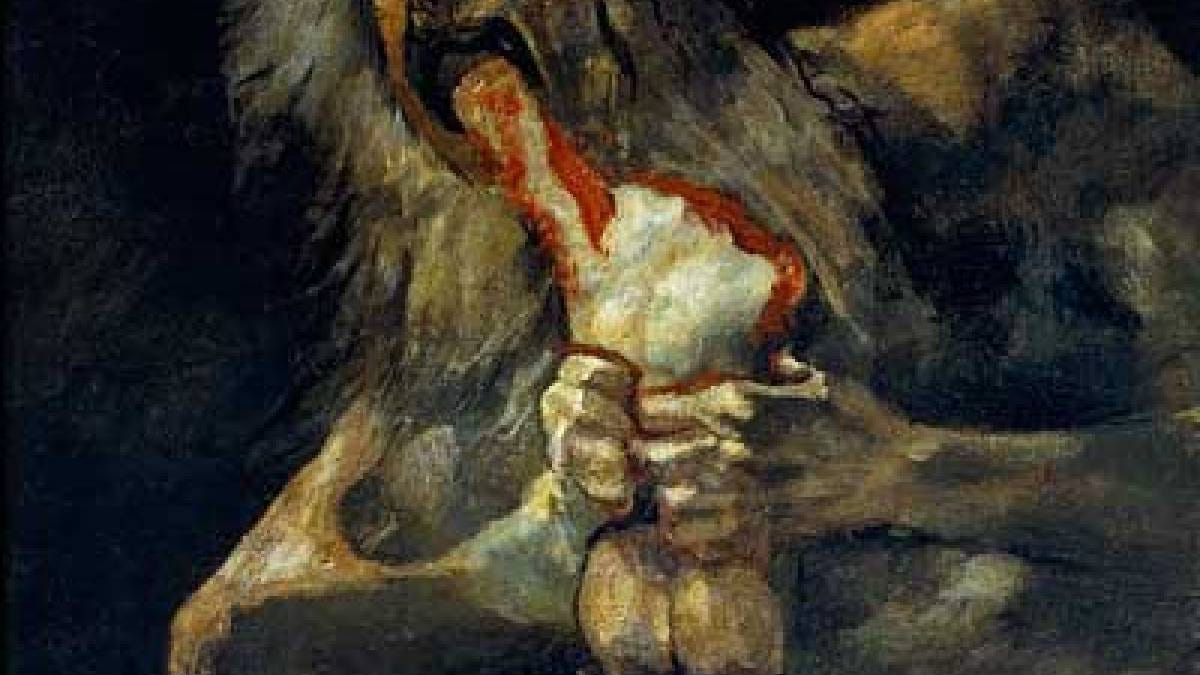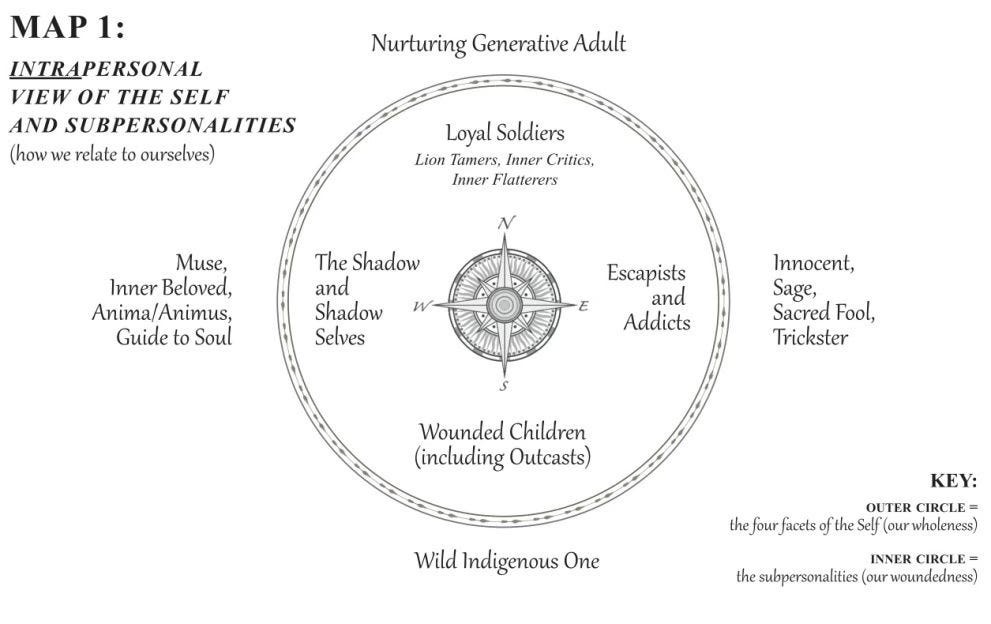The definitions of what it means to be a man - male roles and expectations, competition and animosity, the shaming and devaluing of many of men’s better qualities and capacities - all lead to [a] crushing weight.
So argues Jungian psychologist James Hollis in the early pages of “Under Saturn’s Shadow: On the Wounding and Healing of Men” (affiliate).
It’s a bold statement, and one Hollis finds himself almost apologetically taking in an age where we highlight the struggles of women, ethnic minorities, and queer communities, but often assume that men are immune from such challenges because they sit in a place of broader social privilege. You find a similar apologetic tone in Richard Reeves, “Of Boys and Men” (affiliate), a book about inequities that harm boys and men, one that the research reluctantly compelled him to write.
The idea that, in a man’s world it can be hard for men to know their place seems ludicrous to many, and yet, the very thing that makes it a man’s world results in men losing themselves, or in Hollis’ language, crushed by the weight of it all.
And yet, the lead character in Hollis’ book, the Roman god Saturn, if we allow him, can help us both identify why we carry this weight and find our way out from under it. When we do, we won’t be the only ones who benefit, so will women and children.
If you are new here, welcome to Manhood Reimagined. I’m glad something caught your eye. I’d suggest you start here. I continually update this page which offers an overview of the project and how individual posts fit into a much bigger picture. If you want more about me and why I write here, check this out.
A Bit About Saturn
Saturn was the Roman god of agriculture and generativity who helped to found early Roman civilization. That means he was both powerful and life-giving.
But Saturn’s father, Uranus, was a tyrant who hated his children because he feared their potential. Wanting to protect himself and at his mother’s behest, Saturn castrated his father. But rather than using the accompanying power shift to create a society that gave life, he took his father’s place as a fearful tyrant and ate his children.
Ultimately, Saturn’s son Zeus overthrew him, giving him a chance to create a better world, but he also chose to follow in his father’s tyrannical footsteps.
It is a pattern we pass on from one generation to the next.
Saturn and Us
Now I don’t mean that literally, after all, I don’t know any guy who is tempted to eat his children because he fears their potential, but most of us live in constant competition with others. We assume that Andrew Tate is right when he says that men because they cannot have children, come into the world without any value and need to earn their place in the world.
It is an ideology that explains both our warrior obsession that sees all of life as a battle we need to win and our Rubber Dog Shit Society that is more interested in what works for the individual than what serves the world. In doing so, it identifies why the voices that speak to the struggles of women, ethnic minorities, and all who are harmed by men’s quest for value are so important.
At the same time, it also reveals why men are struggling. We avoid the vulnerability that allows more personal connection because the last thing we want to do is appear weak. After all, in a dog-eat-dog world, the vulnerable dog gets eaten.
Yet this fear of weakness sits behind men’s mental health struggles and high suicide rates. It explains why women live 10 years longer than men, not because they have better genes, but because we are less likely to seek out medical advice when we don’t feel well and then blow off treatment when we do finally get ourselves checked out. Avoiding this perception of weakness explains why so many men are angry princes or rebels and others are fearful and passive-aggressive conformists.
No wonder so many men check out from real-time connections with people and instead dwell in the virtual world of video games or porn. For those who do stay connected, it explains why they jump from woman to woman seeking the muse who constantly affirms and inspires them, always wanting something more than any woman can offer.
Hollis argues that each of these responses is part of what it means to dwell in the shadow of Saturn, living a story of “power, jealousy, insecurity - violence to the principle of eros, to generativity and to the earth” (p10). In other words, it’s a story we all learned, one we were taught as if there were no other options, never mind that it’s not working for any of us.
So what do we do when we find ourselves living under Saturn’s shadow? We remember who Saturn used to be.
Back to Saturn’s Roots
Before he became a tyrant, Saturn was the god of agriculture and generativity. He founded Rome and brought about mass prosperity. In other words, he was anything but fearful or a tyrant. Instead, he embodied what Bill Plotkin (affiliate) calls the nurturing generative adult.
What are some of these characteristics according to Plotkin?
Nurturing Love
This kind of love opens with radical acceptance of both ourselves and others. It embraces not just what we deem desirable, but what repels us. Nurturing love compels us to seek understanding over judgment, it makes us want to understand the circumstances of someone’s life and what led them to the life they are currently living. In doing so, create the kind of space that invites growth and their movement into wholeness.
Caregiving vs. Caretaking
On the surface, these two can look the same as they focus on care, but there is a fundamental difference between giving care for someone and using care to take from them. Much of what is characterized as man’s role of protection and provision is mistaking the two, with caregiving originating from our sense of incompleteness, that ache to demonstrate our worthiness, to earn respect, and to build value. Caregiving on the other hand initiates from our wholeness and moves from a compassionate heart that is deeply attuned to the real needs of someone else.
Generative Love
Who does your work benefit? If the answer is limited to yourself or the company shareholders, your work does not flow from generative love. Sadly, this means every publicly traded business in America, by law, lacks generativity because the interests of shareholders always come first. Generative love always engages in work that places people and the planet over profits, demanding at a bare minimum stakeholder capitalism, but I hesitate to say that because some of the loudest voices claiming to support stakeholder capitalism are also behind some of today’s most horrific business practices.
Gifting Communities
In a community where people honor their biology and have done the work to heal their psyches, things function differently. They are societies where everyone brings whatever gifts they have to the table and the collective decides how to make sure the needs of everyone are met. It is a society that is hard for our Western minds to envision because, as Plotkin says, “mature humans don’t do the things that make up Western history.”
So while we shouldn’t expect to find ourselves in a gifting community anytime soon, we can find ways to behave as if we are already part of one. It happens every time we grow beyond cultural expectations and overcome societal obstacles to use our gifts to serve the world. We move in that direction every time we are brave enough to engage in a reimagined manhood that is better for us, for women, for children, and for the world we share.
Is It Time To Escape Saturn’s Shadow?
Are you ready to escape Saturn’s shadow and step into a nurturing, generative life? I’m here to help. Substance-free psychedelic breathwork can be a powerful exploration tool that allows you to hear your soul speak and holistic life coaching can help you form a plan to start embodying your authentic self. Schedule a Discovery Call to find out more.






